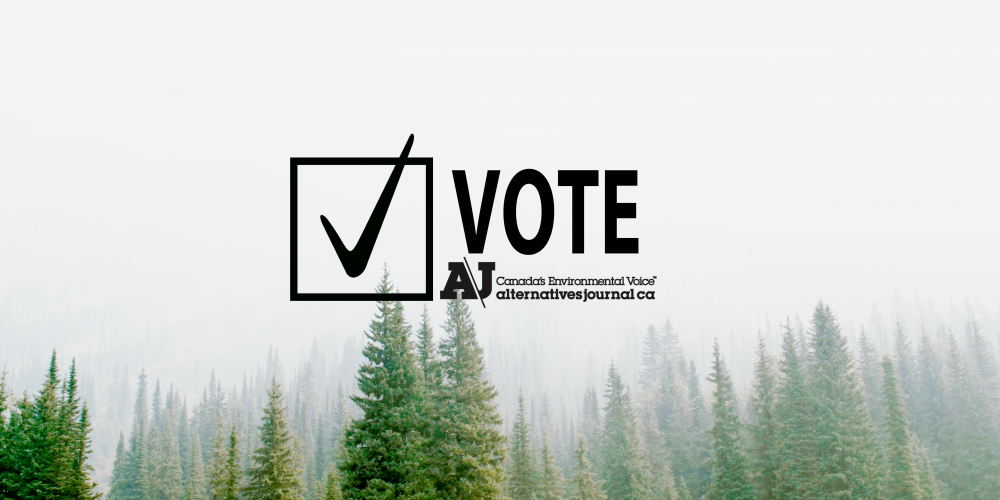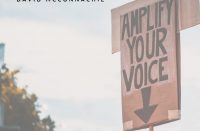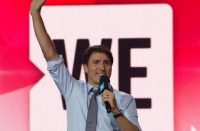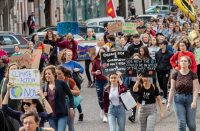I don’t mean to shock you, but First Nations people in Canada were only granted the right to vote in 1960. That’s still within living memory, and a constant reminder of how far this country has gone to silence the voice of this country’s founding peoples.
I don’t mean to shock you, but First Nations people in Canada were only granted the right to vote in 1960. That’s still within living memory, and a constant reminder of how far this country has gone to silence the voice of this country’s founding peoples.
It was only a short nine years later that Pierre Elliot Trudeau – the man who gave us both the Charter of Rights and Freedoms and Justin Trudeau – introduced one of his most infamous pieces of legislation. The 1969 White Paper, as it would become known, threatened to unilaterally strip First Nations of any distinct rights negotiated through treaties, under the guise of benign multiculturalism.
The response provoked the first major exercise in Native organizing in the country, which led to the creation of the National Indian Brotherhood (now known as the Assembly of First Nations) and eventually succeeded in defeating the bill.
Since then, Native communities have been particularly attuned to threats from the federal government, existential or otherwise. It’s no surprise, then, that this election has become a bit of a huge deal for many First Nations.
Perhaps the biggest issue is the rallying cause of Missing and Murdered Indigenous Women (MMIW). The RCMP this year finally confirmed numbers of nearly 1,200 women missing and murdered over the past 30-some years.
Perhaps the biggest issue is the rallying cause of Missing and Murdered Indigenous Women (MMIW). The RCMP this year finally confirmed numbers of nearly 1,200 women missing and murdered over the past 30-some years.
However, Stephen Harper would then go on an interview with Peter Mansbridge and declare that “It isn’t really high on our radar, to be honest, Peter.” Just this month, he tried to claw back his remarks in an interview with Chatelaine magazine, where he denied saying those very words, further eroding belief that Stephen Harper thinks there exist anything resembling verifiable facts.
As the other three national parties have said they would all move forward with a national inquiry into the issue, Harper has remained steadfast in his opposition to the idea. The idea for a national inquiry was also part of the recommendations of the Truth and Reconciliation Commission.
Families and friends of the missing and murdered women will be holding vigils across the country on October 4th, an annual ceremony that will likely remind many of the extreme indifference and even negligence the government has inflicted upon their families.
In my last article — “Why Does Canada Hate Indigenous Rights? One Word: Oil” — I received a lot of response that it wasn’t just oil – it was mining, it was fracking, it was logging, it was golf courses, it was every project and policy that is prejudiced on taking land from Native people to turn a quick profit. Which I completely agree with, but it wouldn’t fit in the headline.
Now, of course, none of this is new. Every government has actively worked to try and dispossess Aboriginal peoples of their lands, to put in roads or rail, to flood lands for megadams, or to get at those sweet, sweet hydrocarbons underneath. But things have definitely gotten a bit more extreme under this government.
Witness the creation of the Idle No More movement, spawned in the wake of the Omnibus Budget bills that took away protection from millions of lakes and rivers, while gutting a number of other environmental laws, to make it easier to pollute waterways engage in profitable business.
Perhaps the biggest single emblematic issue here that divides and separates political parties is their position towards oil pipelines, a kind of environmental bellwether which impact hundreds of First Nations communities. So far, there’s not much consensus.
In B.C., where pipeline politics have been loudest over the past number of years, only the Conservatives remain in support of the Northern Gateway pipeline, despite the massive opposition from locals and First Nations in the area.
The other major proposed pipeline in B.C. is Kinder Morgan’s Trans Mountain, which only the Conservatives have openly supported. The Liberals and NDP both say more study is necessary, while the Green Party has voiced their opposition to this and every other pipeline.
Outside of B.C., the other major pipeline proposal is TransCanada’s Energy East, a mammoth project that would be about 40 percent bigger than their proposed Keystone XL project in the U.S. In case there was any doubt, the Conservatives are also in support of this pipeline. Both the NDP and Liberals have stated the need for more study and have increasingly been more hesitant to say anything good about the project in recent media.
Significantly, the project is heavily opposed in Quebec, a key political battleground, but more supported through the prairies and the Maritimes. This might explain their hesitancy to show their cards before the election.
So what we really have here is one party, the Conservatives, focused on pushing these projects through. Another, the Greens, have stated their opposition to these projects. Somewhere in between, both the NDP and Liberals are opposed to one, and still have yet to decide about the other two, most likely waiting for the political winds to firmly tell them which side will be more popular.
But perhaps besides the issue of Missing and Murdered Indigenous Women, and Native rights by way of pipeline politics, I think it’s fair to say First Nations issues have largely been left out of this election by most leaders.
There are a number of other issues out there. The First Nations Transparency Act. The First Nations Education Act, which originally toppled the last National Chief of the AFN. Housing and water. And a myriad of other issues.
But perhaps besides the issue of Missing and Murdered Indigenous Women, and Native rights by way of pipeline politics, I think it’s fair to say First Nations issues have largely been left out of this election by most leaders.
The Truth and Reconciliation Commission concluded their years of work this summer, issuing a list of 94 recommendations that run the gamut from child welfare, to education, to implementing the UN Declaration on the Rights of Indigenous Peoples.
For any of the leaders out there still looking to engage with Indigenous voters and those who are concerned about Indigenous issues, it would be helpful to see and hear how they intend to deal with these recommendations.
Ben Powless is a First Nations citizen with a degree in Human Rights, Native Studies and Environmental Studies from Carleton University. He has worked on climate change, Indigenous rights and tar sands issues with the Indigeneous Environmental Network, Defenders of the Land, Idle No More, Canadian Youth Climate Coalition and Ecology Ottawa.













